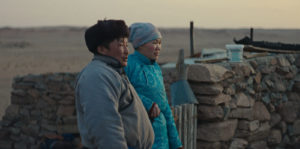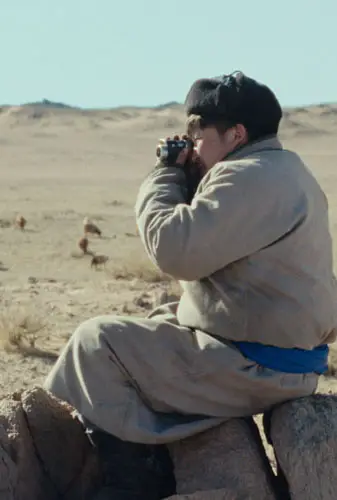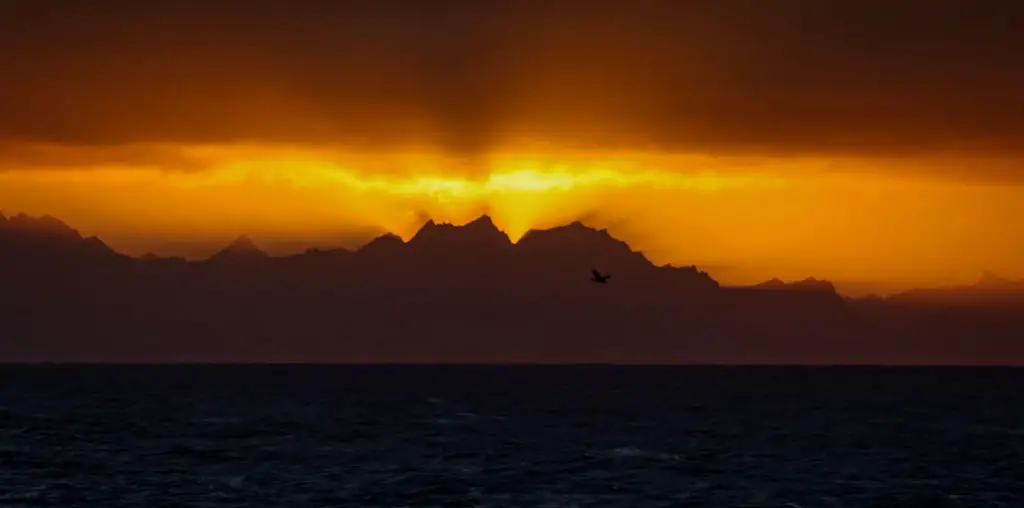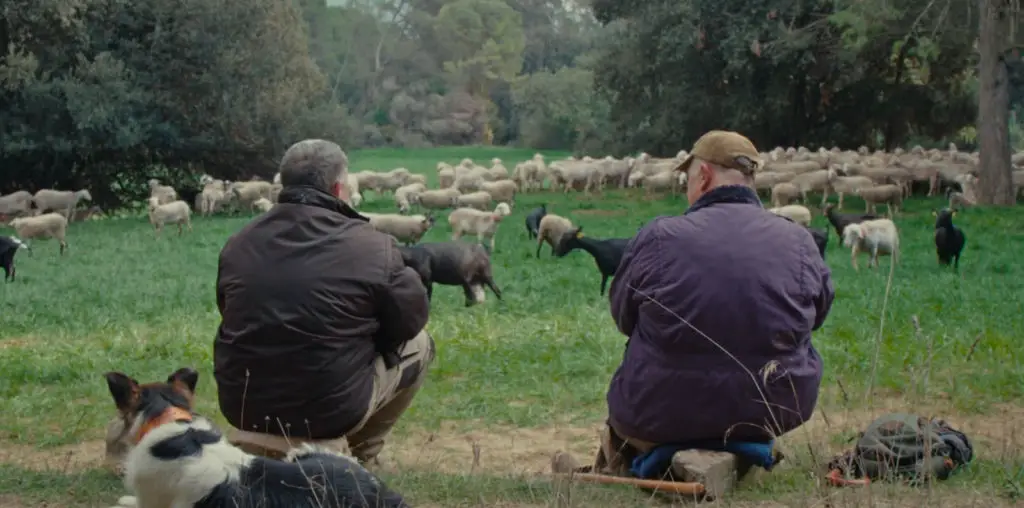
TORONTO INTERNATIONAL FILM FESTIVAL 2024 REVIEW! Director Gabrielle Brady’s The Wolves Always Come at Night offers a unique and intimate perspective into the lives of rural sheep-herders, Davaasuren Dagvasuren and Otgonsaya Dashzeveg. Set in Buutsagaan in the Bayankhongor Province of southern Mongolia, this hybrid film of a narrative drama and documentary provides a modern view of a world and culture often unknown to most. Davaa and Zaya’s journey, from their life in the vast desert to their forced migration to the city, is a personal sacrifice that weighs heavily on Davaa, especially after a fierce winter took half the family’s sheep herd. This unique perspective is intriguing and captivating, sparking a more profound interest in their story.
We follow Davaa and Zaya as they operate their homestead and household while living among generations of family. They care deeply for their animals, and the film begins during the spring birthing season, where the two assist births and care for their flock, including horses, with a watchful eye. Unfortunately, a devastating sandstorm takes out half their herd, leaving Davaa and Zaya with little option but to move to the city for work. Adding to this misfortune, it’s apparent that this way of life for other herders in the region is becoming obsolete. It’s heartbreaking to watch Davaa collect his lifeless sheep from the land as if a part of him died with them. The most apparent reason for this situation is climate change.

“… a devastating sandstorm takes out half their herd, leaving Davaa and Zaya with little option but to move to the city…”
In their traditional coats, and true to their Mongolian culture, Davaa watches his herd with his son. He uses field glasses and rides his motorcycle to check on the animals who freely graze. At home, Zaya keeps count of the herd among family members. The couple genuinely have a love for their life and each other as shepherds. In their yurt, Davaa and Zaya’s kids happily learn and laugh even at night when Davaa checks for wolves in the stable. However, the loss of the herd has caused a disruption, and Davaa’s work as an excavator keeps him apart from Zaya and their children. The forced migration to the city is a stark contrast to their previous life, which still haunts them. Horses roaming the roadways make Davaa yearn for his country life. Zaya must acclimate to her new home as an emigrant and learn the ways and customs of the city, asking about electricity from others who also had to move.
In the long moments of uninterrupted footage that unfold during The Wolves Always Come at Night, we learn of Davaa’s struggles with work and life. He must dig a latrine and destroy untouched earth, and absence from his family finds him in a Mongolian karaoke bar with a drink in hand. He longs to ride his horse across the land and be among nature and the cycle of life. At night, he hears other things that are not wolves. It is his heritage and being to live within the ebb and flow of nature. The city life, which appears impoverished and bizarre, is a big contrast from that in the country, and throughout this narrative, it seems unappealing. The film provides a unique flip on what one might think of as progress because they left a home and place of respect—non-existent in the city.
The Wolves Always Come at Night begs the question of the mental instability of those directly subjected to climate change, what is happening in this world, and how we are all connected spiritually to nature. Watching a family uproot their lives and be displaced is difficult, even more so in a foreign land. However, the filmmakers made great efforts to seamlessly provide an emotional understanding of this remote place that relates to all viewers, no matter where one is from. One minor but clever element is the folk songs used throughout, which acutely reflect what is happening. Overall, this is a cinematic journey that unfolds leisurely yet engagingly and offers caution to what might be on the horizon.
The Wolves Always Come at Night screened at the 2024 Toronto International Film Festival.

"…offers caution to what might be on the horizon."


